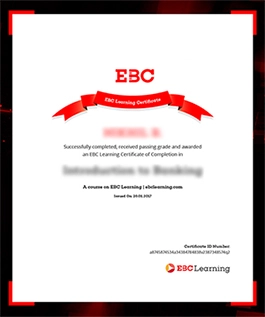Essential Skills for the Legal Profession
Practising law requires sincerity, versatility and attention to detail. This can only be achieved when one is aware of one’s role. Today, most young lawyers or students aspiring to be litigators, are not even aware of what is required of, or even expected of them. This course aims at addressing these doubts.
Knowing each and every aspect of your practice is essential in order to thrive in one’s practice. This course not only deals with the rudimentary aspects of practising law, but also the nitty gritties of the legal profession.
This course introduces you to principles of drafting, reading and communicating, in ways in which you can build a successful practice. This course is intended to be a sort of 'finishing school' for those inclined to litigate.
Course Details
- Level - Beginner
- Total no. of videos - 49
- Total number of assignments: 52

Embrace the fact that in your first years of practice that you are still learning. Law school doesn't teach you everything that you need to know to practice law – far from it.
Cyndee Todgham Cherniak- 1. Introduction
- 1.1 Welcome
- 1.2 Supplements and resources
- 2. Introduction to the legal profession
- 2.1 Approaching the profession
- 2.2 Structure of the legal profession
- 2.3 Looking for a good senior
- 2.4 Your role in the organisation
- 2.5 Performing your role
- ☆ Feedback
- 3. Case files and briefs
- 3.1 How to read a case file?
- 3.2 Brief management
- 4. Knowledge of the registry and court staff
- 4.1 Cause Lists
- 4.2 Estimating the tentative time
- 4.3 Checking if your matter has been called
- 4.4 Getting to know applicable rules
- 4.5 Checking official websites for when a matter is listed
- 4.6 Getting to know the court staff
- 5. Filings
- 5.1 Paper filing
- 5.2 E-Filing
- 6. Other court documents
- 6.1 Order sheet
- 6.2 Judge’s paper-book and inspection
- 6.3 Listing/Mentioning
- 7. Drafting
- 7.1 Use of plain language and modern trends
- 7.2 Keystone approaches
- 8. Principles of drafting
- 8.1 Legal notices
- 8.2 Affidavits
- 8.3 Petitions
- 8.4 Appeals
- 9. Drafting, Briefing Notes & List of Dates
- 9.1 Introduction
- 9.2 Briefing note
- 9.3 List of dates
- 10. Communication
- 10.1 Writing professional emails
- 10.2 Communicating with the other side
- 10.3 Communicating with the client
- 10.4 Communicating with the media
- 10.5 Organising emails
- 11. Advocacy
- 11.1 Effectively assist arguing counsel
- 11.2 Structure your arguments and speak in court
- 12. Note taking
- 12.1 Introduction
- 12.2 Note taking using the Cornell method
- 12.3 Using technology
- 12.4 Calendaring
- 13. Manners
- 13.1 General rules of the court
- 13.2 Use of mobile phones in court
- 13.3 Conducting yourself at conferences
- 14. Dressing up
- 14.1 Dressing for court/tribunal
- 14.2 Dress at judge’s residence
- 15. Using technology
- 15.1 Using technology for drafting, formatting, researching etc.
- 16. Preparing for the future: your own practice
- 16.1 When should you start planning?
- 16.2 What does the move involve?
- 16.3 Costs, getting clients and building a library
- 17. Concluding remarks
- 17.1 What next?
- ☆ Feedback
WHY TAKE THIS COURSE?
What are the key skills that will make you more hirable in the legal profession? Society and societal norms change continuously, which sparks reforms at the highest level in society. To tackle these changes and keep up with modern norms the legal profession endeavors towards making a difference. Young minds are influenced by this noble profession and today want to be instrumental in beings agents of change in society. This course aims to be a guide to those floundering lambs.
This course on professional skills is your ready reckoner for navigating towards and in the legal profession. The course provides practical tips from filing your first petition to putting the right dress for your first case. While all this matters, the course goes beyond by helping you explore your role in the legal profession. As a young legal practitioner, this course will help you to take firm steady steps in the legal profession while giving you bite-sized information on how to start your own practice. This course gives you the most essential but basic skills required to help you thrive and succeed in the legal profession.
Join us on this enriching journey of learning to develop the necessary skills needed to carve your mark in the legal sector.
In this course you’ll learn to:
- Gain an insight on the legal profession
- Examine and understand the concept of drafting and its principles
- Look at the various aspects of advocacy, communication and note taking
- Examine the practical facets of being a lawyer
- Gain practical tips on starting and building your own practice
PREREQUISITES
No prerequisites for this course
Instructors

Talha Abdul Rahman
Talha Abdul Rahman is an advocate on record, Supreme Court of India. Graduating from Nalsar University of Law, Hyderabad in 2008, he went on to pursue a Bachelor of Civil Law from Oxford University in 2009, as a Shell Chevening Centenary Scholar. He has worked with AZB & Partners, Mumbai in its dispute resolution team for about two years before moving on to litigating before Allahabad High Court in 2011. He has been practicing in Delhi since 2013.

There is a huge difference between being a lawyer and practicing law. Almost anyone has the capacity to become a lawyer, but not everyone has what it takes to practice law. To practice law well, do so with inspiration and dedication.
Hamoody HassanCertificate
Complete this course and exercises to earn a certificate. Share it with your friends, colleagues, and employers.*
*You must Subscribe to get a certificate.

Limit Reached or Trial Expired
You have reached the limit of 2 audit enrollments or your trial period has expired.

